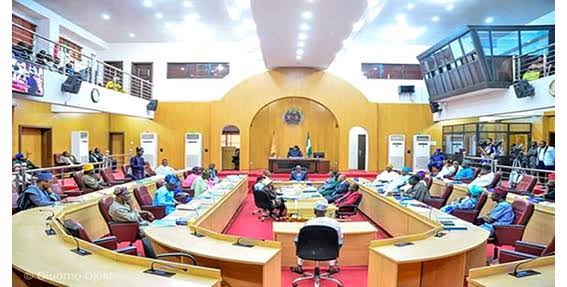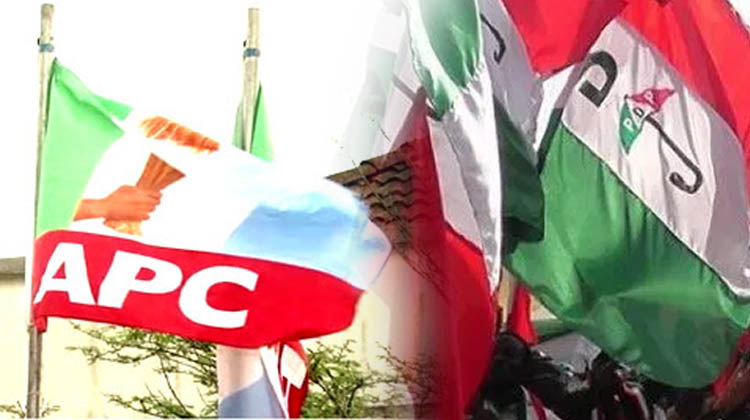
Imagine what happens when you chaperon a toddler arriving in the city (after a long spell growing up in the countryside), into a sweetshop, under the bright lights of the shopping malls. The toddler is easily lost, confused, and flabbergasted by the goodies on display. He picks up one roll of sweets, then drops it for a different one, picks up another one, caresses and holds onto it momentarily, before being drawn to another shiny box on the top shelf over the counter. He calls the attention of the shopkeeper, who beckons him along to the right queue for his latest fancy. This goes on and on until his indecision starts unnerving his guardian, who then tries to make up his mind for him. Now, imagine that the toddler is, in fact, Nigeria running around inside a democracy sweetshop of her own. The guardian is, in fact, the law. This is not too far-fetched as some might think. ‘Democracy’ has only been with us for 20 years following a prolonged military interregnum.
The Nigerian population understands the ideal of democracy and, by all accounts, wants to embark on the journey. The only problem is the division over the mode of arriving at the destination. The tried and tested route in history is the great upheavals leading to revolutions and fundamental shifts in direction. The other, a more common route for many in today’s world, is through trial and error. That means learning on the job, taking the short, unsteady baby steps; occasionally falling on one’s backside, getting up and keep striving until normal walking, and running is achieved. The ideal democratic destination requires the calculated patience of a marathon runner, not the single-mindedness of a sprinter. There is one aspect of the Electoral Act Amendments Bill 2021, waiting for the presidential assent as you read, which aims at cutting the Gordian knot. It is the clause that mandates “direct primary” elections for elective positions across all political parties in the country.
The question: is direct primary the fairest way of choosing a party’s flagbearer? The answer, quite unequivocally, is yes! There is a more fundamental question: is using the blunt instrument of legislation the best way of enabling direct primary? The answer, quite emphatically, is no. First, what is “direct primary”? The clue is in the question. Direct primary presupposes an “indirect primary” as the malady that needs a cure. Here is how an indirect primary works. Assume a member of party ‘A’ wishes to stand for governor of his state in a general election. The party activists in his constituencies and wards will select a number of people amongst themselves to serve as electors (otherwise known as delegates). They are people to whom the power to select the standard-bearer of the party is delegated. They indirectly represent the entire membership of the party in the state. The delegates, usually in their hundreds, sometimes thousands, suddenly become real power brokers before whom the candidates (some say aspirants) take a bow. Whichever of them makes the best case gets their support. That is it in a nutshell.
The process is cheaper to run than conducting a general ballot. It gives the hard-core party activists; those going door-to-door canvassing, pounding the street and getting their hands dirty, a decisive say on who stands for the party in a general election. An enormous privilege, but a just reward for the party’s faithful, perhaps? Critics of this system, however, ask: why not fling the door wide open to the rank and file, instead of a small number of delegates? Why not compel the aspirant to make their case directly to the card-carrying members as a whole, (in their hundreds of thousands), instead of hobnobbing with a handful of delegates in hotel rooms in the dead of the night?
Perhaps the most damning argument against the delegate or indirect system is that it is wide open to abuse by the moneybags. Delegates have been known to offer themselves up to the highest bidder. They tend to gravitate towards the candidates with the deepest pockets, instead of the ones with the best ideas and, possibly, a higher public profile. It is also axiomatic that money spent buying delegates is recouped once in office, thereby deepening high-level corruption. That being said, the million-dollar question still is: should the choice of direct or indirect selection of a party’s flagbearer be a matter for the political parties, or should it be compelled by law? The Nigerian lawmakers, in their wisdom, have decided to compel the direct system for all elective posts in political parties. This is contained in the bill currently on the president’s desk.
In their view, the influence and power of money are simply too overwhelming for the average party member to grapple with when it comes to the selection of standard-bearers. It should be said that the lawmakers’ intention on the direct primary clause is noble, honourable, and even laudable. But, is it not taking a sledgehammer to crack a nut? It is a legislative overreach I am afraid. Political parties are not government agencies. They are private associations with their own rules and governance systems, clearly advertised and known to everyone in advance. The interface between membership and party hierarchy is the real stuff of politics. Adoption, rejection, and amendment of rules are the sine-qua-non for a political party. Remove that (as being suggested) and what is left is but an empty shell.
The inspiration behind the direct primary clause can be traced back to the dying days of the odious regime of the former Military-President, General Ibrahim Babangida (1985-1993). He had created two political parties in 1989 by decree – the Social Democratic Party and the National Republican Convention. The military strongman also went ahead to prescribe the parties’ manifestos and ideological inclinations: One, “a little to the left” and the other “a little to the right.” This was done to forestall any intra-party argument or rancour over policy and development priorities. Party members were simply expected to follow Babangida’s cynical contraption hook, line, and sinker. This was not only crass in its conception, it was an insult to the intelligence of Nigerians. Political parties are the vessels for airing and thrashing out policy disagreements and construing rival visions for society. Babangida had attempted to pre-empt all of that. The direct primary clause awaiting the president’s signature right now is a nod to the military mindset of a bygone era.
A change to a party’s constitution over the adoption of a direct primary system is quintessentially a membership affair. It cannot and should not be imposed by decree or, for that matter, legislative fiat, however well-intentioned. To do so would be the slippery slope towards nationalisation of political parties, where lawmakers would, in future, take it upon themselves to lay down party manifestos and their political agendas in tow.
That said, is there a case for direct primary across the board? There is no question. However, the proposal, the debate, acceptance or rejection of that bold move must be tabled, argued and fought for by members of the political parties themselves. Lawmakers cannot and should not infantilise party members in the guise of promoting internal democracy. After all, what better glory to internal democracy than the idea of direct primary coming as a battle fought and won from within? The lawmakers’ lack of confidence in the ability of grassroots party activists to make change happen is unduly pessimistic. Whoever thought the road to a mature democratic culture would be an easy trek, without a dose of pain, is indeed the one who needs help. Direct primary will not become the norm until party members, not lawmakers, choose to make it so.
A MUST TO READ
For your Advert Placement, Publicity, Press Release, Personality Promotion, Special Report, Featured story, Conference, Interviews, And So On – CONTACT US on WhatsApp/Call📞@ 08072633727 📲
NOTE: We wish to add you to our WhatsApp Database to get our Trending, latest and timely news directly into your WhatsApp Box as the news breaks.



